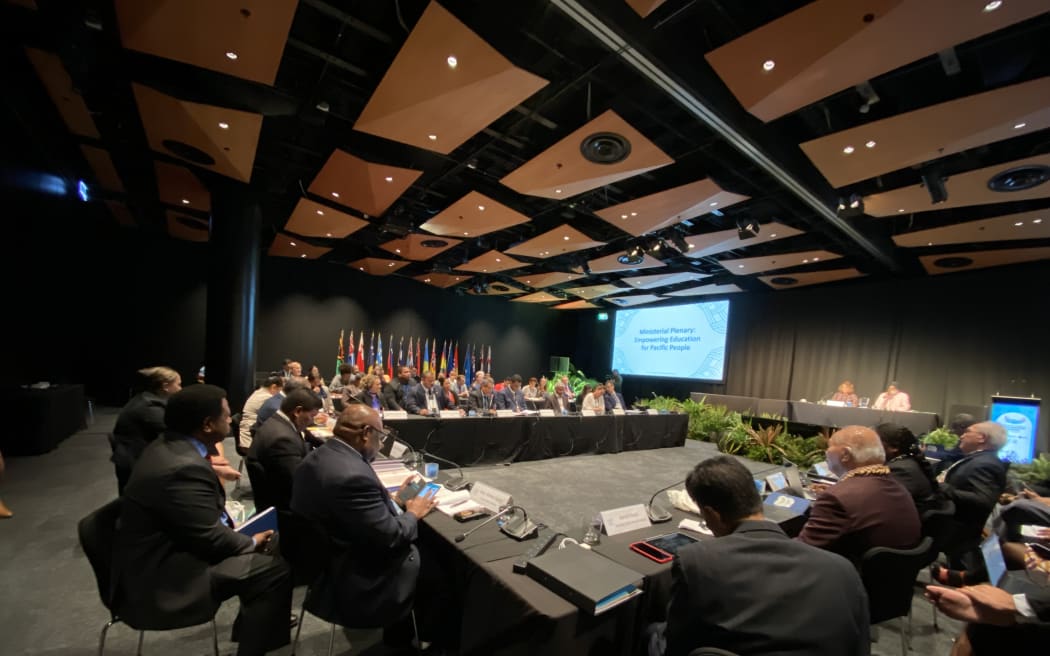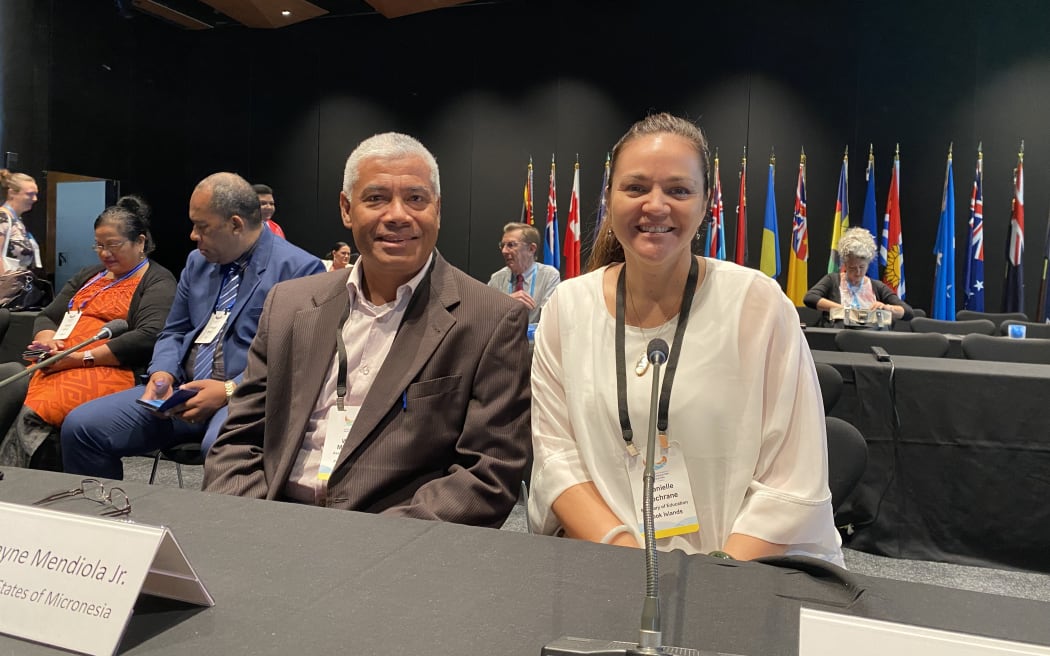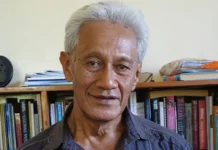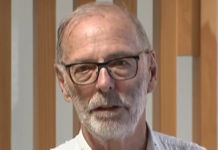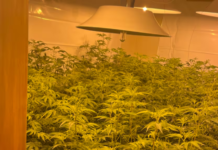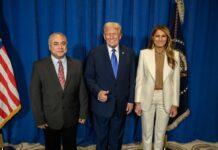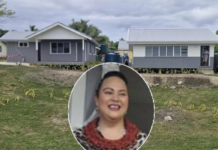By Lydia Lewis of RNZ.co.nz
Tonga’s Prime Minister Hu’akavameiliku Siaosi Sovaleni is advocating for the issue of sky-high tertiary education fees for Pacific students studying in New Zealand to be addressed.
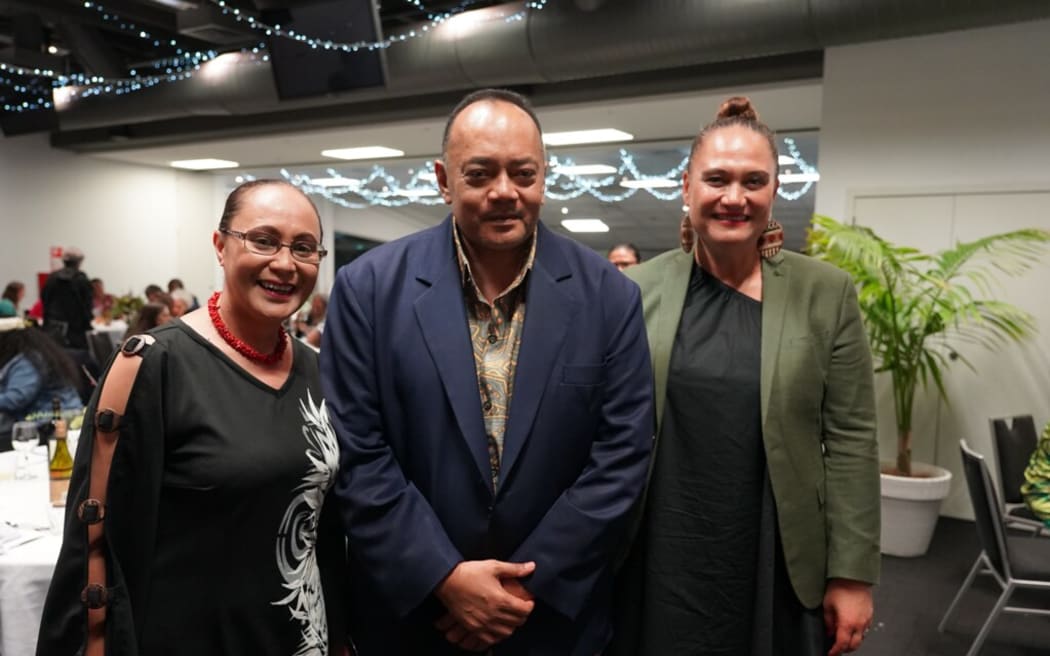
Hu’akavameiliku noted his concerns when he met with New Zealand’s Education Minister Jan Tinetti at the inaugural Conference of Pacific Education Ministers (PEM) held in Auckland last week.
This is not the first time the issue has been brought up by the Tongan leader.
Earlier this year, he told media that he has reservations around tertiary fees with the New Zealand high commissioner.
But now he has escalated the matter to the leaders’ level.
School fees at universities in Australia and New Zealand are high for Pacific students at the moment, Hu’akavameiliku said.
He said different fee structures applied to resident and international students.
Pacific students were on the international list and that meant they had to pay higher fees to be able to access higher education in Australia and New Zealand.
Tinetti said Hu’akavameiliku was not the only leader to have raised similar issues with her.
She said she is not ruling out changes being made to make it more affordable for Pacific students to study in Aotearoa.
But she concedes that it would be a massive change.
“I absolutely understand the issues that he is talking about. Let’s see if we can find a way forward,” she said.
“I have had similar discussions with other ministers here as well. This is something that we have discussed as a collective and I have committed to everyone in this room that we will continue to have those conversations.”
Pacific education ministers talanoa at Inaugural Conference of Pacific Education Ministers in Auckland New Zealand. Photo: RNZ Pacific/Lydia Lewis
Curriculum, teacher shortages, inclusivity
Education ministers from other nations also flagged issues and priority areas which they felt were crucial at the conference.
Curriculum development, inclusive education policies, teacher shortages, and women’s participation were high among the concerns.
Niue’s Education Minister Sauni Tongatule welcomed New Zealand government’s efforts to prioritise inclusive education for Pasifika students.
Last year, the New Zealand government funded the Vagahau Niue language app and progress was made to implement Gagana Tokelau and Vagahau Niue in the New Zealand curricula.
Jan Tinetti said it will be around three years until it is fully operational.
Potential for student exchanges needs to be explored
Papua New Guinea’s education minister Jimmy Uguro wants Pacific nations to ramp up teacher and student exchanges.
Uguro said there have been such programmes in the past but they came to a halt due to the covid pandemic.
He said for Pacific educators to be united, sharing knowledge and culture through exchanges was vital.
“Teachers from PNG can come to New Zealand and the Cook Islands and other places, so we see a culture and we are on the same page. Students can also do the same.”
“Now it is not happening because of covid-19 and the other challenges,” Uguro said.
Tinetti said she would like to explore teacher and student exchanges.
The Pacific Islands Forum Secretary-General Henry Puna said, “without education to drive economic growth, Pacific nations will remain dependent on others to finance development goals”.
Meanwhile, the conference also saw the establishment of an education ministers’ network.
“It’s basically a communication platform whereby we can continue the discussion, there are a whole lot of issues in education that we need to discuss, and we can’t cover it in two or three days,” Hu’akavameiliku said.
Assistant Secretary at FSM Department of Education Wayne Mendiola and Cook Islands Ministry of Education Secretary, Danielle Cochrane. Photo: RNZ Pacific/Lydia Lewis

